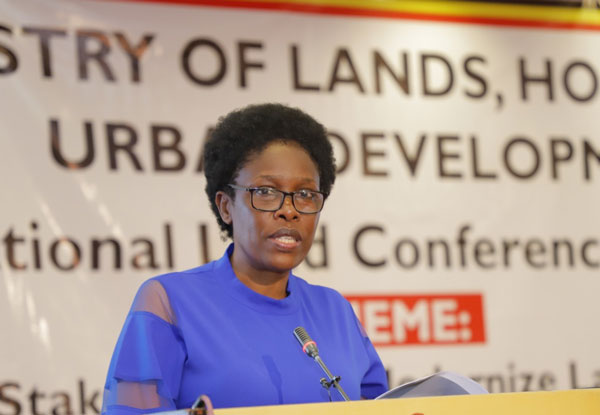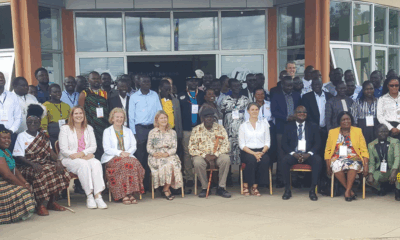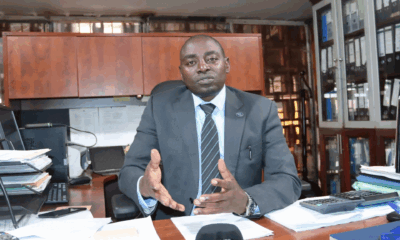News
Government Launches Centralized Busuulu Collection to Safeguard Tenant Rights
In a significant move aimed at protecting lawful land occupants and streamlining land tenure, the Minister of Lands, Housing and Urban Development, Judith Nabakooba, has announced the establishment of a centralized system for the collection of nominal ground rent, commonly known as busuulu. This new initiative, which includes a dedicated government bank account, seeks to address long-standing concerns raised by tenants, particularly during President Yoweri Museveni’s recent tour of the Buganda region.
Speaking to the press on Saturday, Minister Nabakooba confirmed that a new central bank account has been set up to provide a legal avenue for tenants to deposit their busuulu payments. This critical measure is designed to resolve issues arising from absent landlords or those who refuse to accept payments, thereby preventing unlawful evictions.
“Government remains committed to securing the rights of bibanja holders through lawful means,” Minister Nabakooba stated confidently. “The public should not be misled by political messages that discourage participation in these programs.”
The Minister reaffirmed that lawful and bona fide occupants are afforded robust protection under the Constitution and the Land Act, emphasizing that they cannot be evicted as long as they fulfill their annual ground rent obligations. This protection is further solidified by an amendment to Statutory Instrument No. 55 of 2011, now updated as Statutory Instrument No. 2 of 2025.
Minister Nabakooba also reiterated that busuulu is a fixed, nominal fee determined by the government and is not subject to negotiation between landlords and tenants. The rates have remained constant since 2011:
- Shs50,000 in cities
- Shs40,000 in municipalities
- Shs30,000 in town councils
- Shs20,000 in town boards
- Shs5,000 in rural areas
Beyond the centralized payment system, the Ministry of Lands is actively encouraging tenants to apply for Certificates of Occupancy. These legal documents officially recognize and formalize their rights to use the land, offering greater security and reducing the potential for disputes. The Minister reported significant progress in this area, with over 96,000 bibanja already mapped and more than 500 certificates issued in districts such as Mubende, Mityana, Kassanda, Kiboga, and Gomba.
This comprehensive effort is part of a broader government strategy to mitigate land disputes, particularly those involving new landlords, and to facilitate the transition of tenants from a subsistence-based economy to a more market-oriented one.
In a move to enhance transparency and combat fraud, the Ministry has also launched an online platform and a mobile application. These digital tools allow tenants to conveniently check the status of their Certificates of Occupancy and access details of the registered landowners, providing crucial protection against illegal evictions and the fraudulent sale of tenanted land.
Comments

























